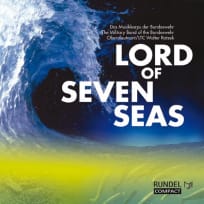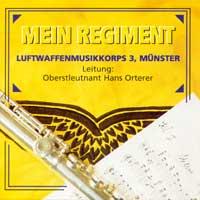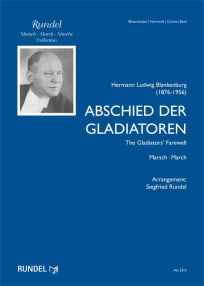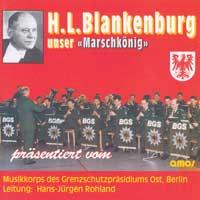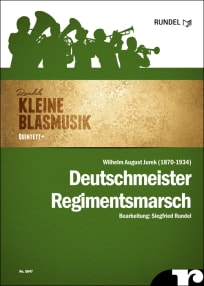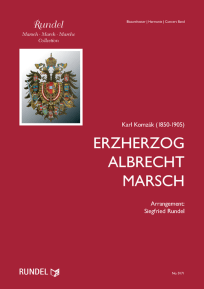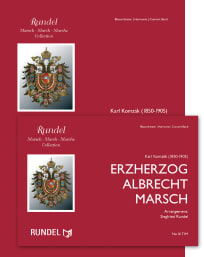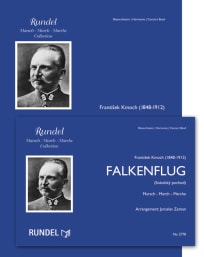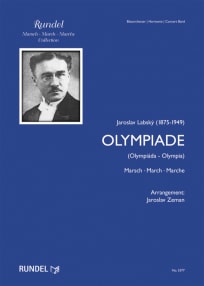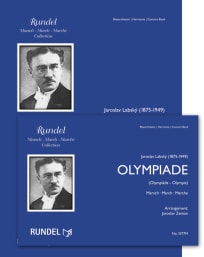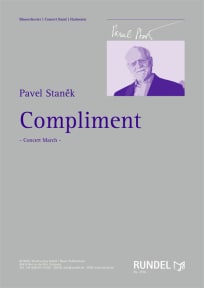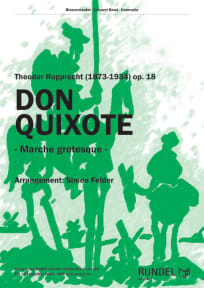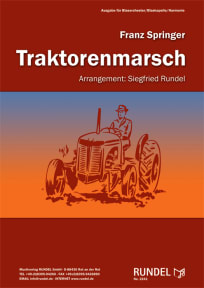Concert Band
Mein Regiment
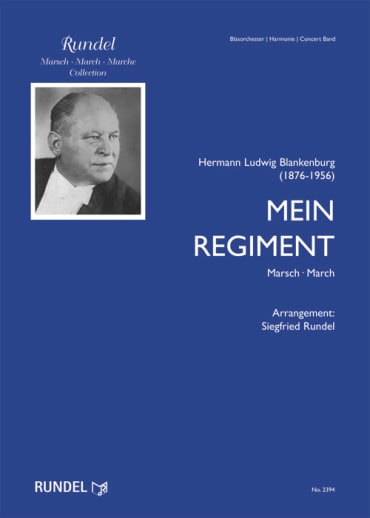
Concert Band
Mein Regiment
Composer
Arranger
Genre
Occasion
Performance time
00:03:50
Grade Level
Mittel-/Oberstufe
Publisher
Rundel
Size
A4
Info
Full Score + Condensed Score + Parts
Order Number
MVSR2394
Release Date
2001
Listen
Read
Listen & Read
Wishlist
Print
Share
Info
Hermann Ludwig Blankenburg is rightly referred to as the „German March King“ though he definitely did not lead a spectacular musical life. It is also remarkable that he was not considered in the world of military bands, which dominated the band scene at that time, as none of his marches was accepted as an Army March. This is hardly understandable, as many of his works contain those very elements that make a stirring military march. Blankenburg was born in Thamsbrück in the province of Thuringia in 1876. His father did not want him to become a musician, and he was already 16 when he finally talked his father into accepting a musical training. One of his teachers was Music Director Peters in Holzminden, and it should perhaps be explained that the period common apprenticeship for musicians lasted some four years. From 1895 to 1897 he served as a conscript in Breslau, where he played the tuba in the mounted band of Field Artillery Regiment No. 6. Following his national service, Blankenburg stayed in Kaiserslautern for a short period, and then moved to Barmen with his family in 1900. At first he experienced rather modest living conditions, and had to accept seasonal engagements as an orchestra musician in Duisburg, Elberfeld-Barmen (today: Wuppertal) and Dortmund. While his family mostly stayed in Hagen during that period of his life, Blankenburg lived in many cities of the Rhineland and the Ruhr region on account of his various employments. Blankenburg who is shown in the directory of inhabitants of the city of Hagen in 1909 as “Music Director”, was drafted into the Cleve Field Artillery Regiment No. 43 in Wesel in 1914. It is not sure, if he played in the mounted band of the regiment, or if the band continued to exist during World War I. In any case, he remained with this regiment – with certain intermissions – until the end of the war. In 1918 Blankenburg married a second time, and then decided to stay in Wesel in the Lower Rhine region which, after all, had become his second home. In the course of time his conditions of living improved considerably, though several attempts to start a publishing company of his own, underline the fact, that Blankenburg surely was no businessman at all. In any case, Blankenburg became a respected citizen in Wesel, and in 1936 his friend Willibald Gatzke even started a “Blankenburg Secretariat” in Berlin. The end of the war brought about great misfortune for him: His home was bombed during an air raid, and he also lost all of his music, an almost irreparable loss. In addition, his son Karlheinz whom he hoped to become his musical successor, died as a Russian prisoner of war in 1946. Manfred Schustereit, the international authority on Blankenburg characterizes the composer and conductor Blankenburg in the following way: “…Most of his marches stand for high-level musical quality. They distinguish themselves by their melodic charm and their imaginative and appealing themes… Some of his marches that are especially well crafted musically, have almost become common property…” and “…When Herman Ludwig Blankenburg conducted his own marches, he did this in an especially unmistakable way. It always was his own creative capability and feeling coupled with his innate musicianship that became the prominent aspects then…”
The world renown of numerous marches by Hermann Ludwig Blankenburg may be traced back to 1906, when he was awarded the first prize for the 1905 march contest of the famous British publishing company Boosey & Hawkes. For this contest he had submitted the march “Germany’s Princes” which was later altered by the publisher to “The Gladiators’ Farewell”. The march „My Regiment“, Op. 102 was published by Blankenburg’s Publishing Company in Hagen in 1912. Foreign editions later followed in Switzerland, the Netherlands and, of course, in Great Britain (including most countries of the Commonwealth). This composition became Blankenburg’s favorite march. It distinguishes itself by its sonorous attractiveness and became the model for numerous marches which the German March King composed in years to come.
In spite of the composer’s choice for “My Regiment”, it always has been ranging as number two among Blankenburg’s most popular marches.


